Stories of Empowerment
Surviving HIV
I AM A SURVIVOR. This story is about life, not about death. My name is Sikudhani. I’m 48 years of age. I’m a person living with HIV (PLHIV).
I have been living with HIV/AIDS, by living I mean I have been living with the HIV Virus, for the last 25 years. Most people who see me do not recognize that I have been infected with the HIV Virus. I look healthy and I’m stylish. I wear beautiful clothes; make-up; and perfume. I’m also educated and I hold a good post in a private company.
About 25 years ago while working as a bank clerk I got engaged to a kind; gentle; and caring man. He took me to meet his parents and they welcomed me as their prospective daughter-in-law. Six months before the wedding, my fiancé got involved in a car accident. He lost a lot of blood and was badly wounded. At the hospital, he did not respond well to the medication administered. The doctor recommended an HIV test which proved positive.
When the results name, my fiancé’s parents and brothers turned on me and started shouting insults at me, that I had infected their son with the HIV Virus. I was too shocked by the accident and by the result to respond. His brother slapped me, after which my sister took me away from the hospital, saying those people would harm me.
My fiancé never regained consciousness. I was not allowed to attend the funeral. My fiancé’s family sent someone to collect the gifts they had given me for the betrothal including the money for the bride wealth as per tradition. I couldn’t stop crying. The most painful part was not being able to say farewell to my fiancé. I was confused; hurt; angry; and lost. I still had not internalized the fact that I too could be infected with the HIV Virus.
Several months passed (in a blur) and I still had not internalized the fact that
I could be infected with HIV. Subconsciously, I felt that if I did not acknowledges the possibility of my being infected, the disease would remain a phantom, reassuring myself that my fiancé had died from the car crash.
It was when I heard the mother of his 10 year old child had died of AIDS that the news hit me very hard! I was able to go to her funeral and her aunt took me aside and said “They had known for a while that they have HIV” meaning my fiancé and the mother of his child from whom he had parted before I started going out with him. The aunt advised me not to tell people but said there were traditional medicines of stalling the onslaught of full blown AIDS which I should access. I still hoped that I had not been infected as until then, I hadn’t been tested for HIV.
I became a recluse, going to work and staying at home with my immediate family and close friends. I did not tell any member of my family; friends; or colleagues; at work that I might have been infected with HIV, in the hope it would go away. I did not attempt to date any man and kept to myself.
Did I feel different? I suppose so. Different because I had lost my fiancé whom I had loved a great deal but I did not feel there was any difference in my health.
I was very depressed but I was not thinking about HIV. I was depressed because the wedding invitations had gone out and because my fiancé’s family refused to see me. They were my only link with my late fiancé and I felt seeing his family regularly would keep my memories of him alive.
Two years later I took a transfer and moved to Dar es Salaam. I was still healthy but I had heard of organizations of People Living with HIV /AIDS (PLHIV) like SHDEPHA+ and some of the PLHIV like Joseph Katto and the late Feruzi had gone public and given testimony about their HIV status. I visited their location hear Muhimbili hospital but I did not say anything. I just looked at them. There was a whole group of them including women, who looked healthy. Moreover, they looked happy and quite comfortable with their HIV status.
I remember asking them for information on Voluntary Counseling and Testing (VCT) and they gave me leaflets about the VCT centers in Dar es Salaam. I pretended the leaflets were for a friend.
A month later, I went to SHDEPHA+ and found there was a meeting going on, what they call “Group” and they had visitors from Development Agencies and some PLHIV from WAMATA, the first PLHIV network in Tanzania.
Someone took me aside and asked me whether I had been tested. I said “No!
I haven’t been tested” and the person then told me “You are better off knowing about your HIV status and the only way to know is to get tested”. Eventually I did get tested and it was confirmed that I have been infected with HIV. Thus began my dual life.

To the general public, I was a young woman, healthy; moving upward in my career graph; popular; and stylish. To the PLHIV Movement, I was this furtive figure flitting in and out of ‘Group’ hiding my HIV status to the general populace while being ‘Open’ among my PLHIV peers.
I was frightened of being found out by my employers and getting sacked; frightened my parents would find out and become ill with worry; frightened of societal censure; because at that time, the stigma and isolation which a PLHIV undergoes was traumatic. The stigma; discrimination; and isolation; was so immense, that quite a few committed suicide rather than face the moral judgment from society. I hid from my friends; family; neighbors; and office colleagues; that I’m a PLHIV and I never attended any of the PLHIV public meetings.
I never acknowledged my PLHIV status outside the PLHIV centers. I also I’m ashamed to admit, I derided PLHA when members of the public laughed, jeered or accused them of promiscuity, while calling them “walking corpses”. My health was good and I was like everybody else suffering from the common ailments like flu and malaria which got cured the moment I took medication.
At a wedding, I remade the acquaintance of a man from my home town a University professor who had been abroad for five years. In conversation, he said his wife had died a year before and he had two small daughters he was taking care of on his own.
A week later, he came to my house with his sister and later took me aside and told me he knew about my status and that it would be ideal if we married as we were both lonely and needed companionship.
Without hesitation, I agreed and we married a month later. I got on with his small daughters and his mother and sisters and was very happy. Because I had found my métier i.e. motherhood, I stopped going to the PLHIV “Group” although I would occasionally drop at the centers to say “Hello”.
My husband and I did not acknowledge our HIV status to anyone, even between ourselves, we never discussed it.
About three years later, my husband started ailing. We went to several specialists who said he should go on a special diet; give up smoking and to rest whenever possible. He did not live long and died a year later.
I was back where I had started and had two little girls to take care of who regarded me as their mother not remembering their own mother. And then a fight began when one of my sisters in law wanted to take away the two houses my husband had left and the retirement benefits from his place of employment.
I had a court battle; two little girls to take care of; I was a widow who had lost a husband who was also a friend and mentor; and I was, I, am, a PLHIV. I did not despair because at the PLHIV centers there were hundreds of women in a similar predicament. At least I had my job and my health was not impaired.
I made more friends in the PLHIV movement but when it was made it mandatory for all members in the PLHIV network to disclose their PLHIV status by giving testimony in order to teach the public on methods of infection and prevention, I left the network.
I began looking for alternative groups which did not require their members to disclose their HIV status.
I respect the SHDEPHA+ and WAMATA leaders and members because though they knew I was hiding my status, none of them told on me. It was a sort of tacit agreement among PLHIV to respect the right of those who wish to hide their status.
Because I have skills in accounting; book keeping; and administration; I began helping out in PLHIV groups in anonymity of course, because I still did not want non PLHIV to know about my status.
By now, we had formed more women based Civil Society Organizations for PLHIV women including WOFATA and AWITA, each focusing on a particular issue concerning women PLHIV and I was active in most of them.
When I did decide to go public, I did not tell anyone except my boss in the office. It came as a surprise to my friends in the PLHIV movement and as a shock to my family, my father especially, but he took it in his stride and came to Dar es Salaam from Morogoro to be with me. I was amazed at the response I received. My neighbors came to congratulate me, so did my office mates. Members of the media kept calling for interviews. I felt relief and a sense of achievement. Four years after going public I have become adept at media interviews, though the squabbles among women in the PLHIV movement took its toll on my health.
My CD4 count went down which alarmed me and had to take medication and constant rest. I’m lucky I have a kind and supportive boss who endorses my Excuse Duty ED applications.
The journey from that shy; awkward; insecure woman; 25 years ago to what I’m now has been thorny; difficult; stressful; but it has also been a journey of discovery where I have made friends; traveled; helped counsel women PLHIV undergoing difficulties in their lives; fought for rights of orphans; got appointed the Ambassador of Hope; got ridiculed; maligned; jeered; and I have emerged whole. When I say whole I mean my health has not been greatly impaired, I can still Dance!
I enjoy going out with friends to clubs. I enjoy cooking meals for my friends some (non PLHIV) of who make it a point to eat from my plate in public to show HIV is not infected through social contact. The women’s section of the PLHIV movement has made strides vis-à-vis obtaining the dignity of People Living with HIV. We have gained recognition as members of society, meaning that the attitude of society towards PLHIV has changed dramatically in the last 15 years.
Whereas in the past people used to shun us, gradually we have come to be accepted as productive members of society.
I think the change in attitude is also due to the fact that we in the PLHIV movement try all the time to behave with dignity. If you respect yourself, others will respect you. Of course, there are major gaps in the AIDS Establishment in Tanzania.
The Rights of PLHIV in employment; in housing; and in acquiring soft loans for business are now being recognized and enforced. All those issues are covered in the HIV.AIDS Policy and the AIDS Act.
However, in inheritance, most AIDS widows/widowers suffer because probate takes years after a spouse dies and before conclusion, the widow/widowers could also die, leaving the children destitute and at the mercy of greedy kin. In the women’s section
of the PLHIV movement, we have seen this discrepancy and we have started campaigning for special court hearing for matters relating to the probate for families affected by AIDS.
Then there is the issue of employment. PLHIV are afraid to reveal their status because more often than not, prospective employers refuse to give jobs to PLHIV.
These issues have to be addressed. Urgently! Yes! We have lost a great number of our friends; our relatives; our folk; to AIDS but there are millions of others who have survived. With proper care; a nutritious diet; and Anti Retro Viral Therapy ART, most of us will live long and healthy lives.
I have my quirks, for example I hate being alone in the house so I have taken in several orphans that I care for. I also have my late husband’s daughters. They are in college, and visit whenever they have a day off.
I have become a vocal activist in the PLHIV movement. I have a sense of self. Yes, it is hard being a woman; a PLHIV; a widow; but the good things in life far outweigh the difficulties. I’m positive all the time. I subscribe to the adage “It is better to live with hope than to give in despair, to light a candle than to accept darkness”.
“Together We Can Make it Happen”
Leila Sheikh




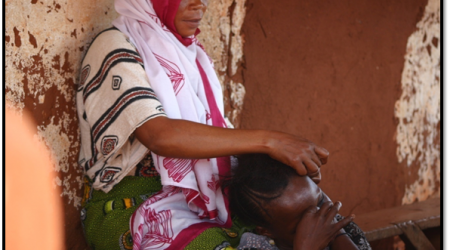
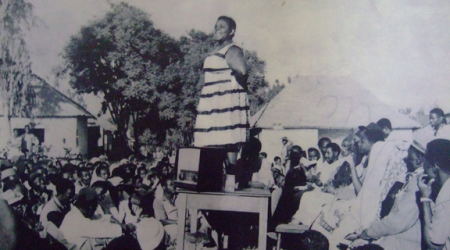
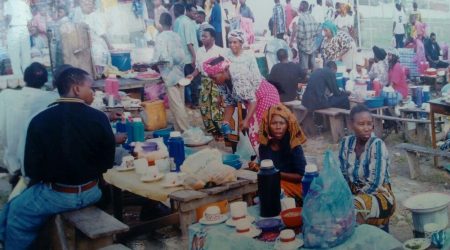
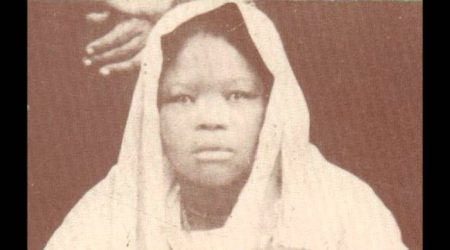
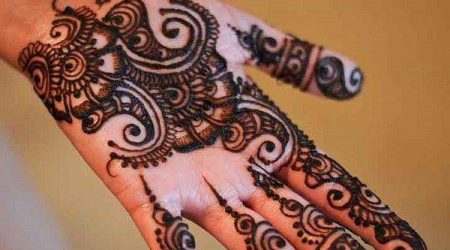
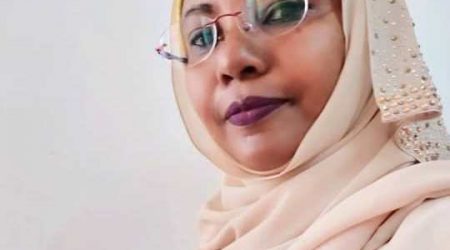




Leave a Reply